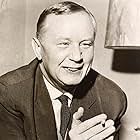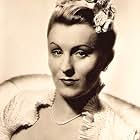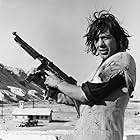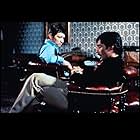This ethereal, three-hour biopic is the middle film in Hans-Jürgen Syberberg's "German Trilogy" on the mythological foundations of the Third Reich.This ethereal, three-hour biopic is the middle film in Hans-Jürgen Syberberg's "German Trilogy" on the mythological foundations of the Third Reich.This ethereal, three-hour biopic is the middle film in Hans-Jürgen Syberberg's "German Trilogy" on the mythological foundations of the Third Reich.
- Awards
- 2 wins
William Trenk
- Rodolf Lebius
- (as Willy Trenk-Trebitsch)
- Director
- Writer
- All cast & crew
- Production, box office & more at IMDbPro
Storyline
Did you know
- TriviaSecond part of Hans-Jürgen Syberberg's trilogy on German history, also including Ludwig - Requiem for a Virgin King (1972) and Hitler: A Film from Germany (1977).
- ConnectionsFeatures An Impossible Voyage (1904)
- SoundtracksSymphony No. 4 in G major
Composed by Gustav Mahler
Featured review
In looking for "Our Hitler," which I've never actually seen, I was surprised that the only thing my major-city public library system had by Syberberg is this earlier film, which is much lesser-known than "OH" or "Parsifal." There is some brief use of the toy sets, superimpositions and such that would be greatly more prominent in those much more famous (and experimental) films. But "Karl May" is by contrast a pretty straightforward costume-drama biopic, if a slow and of course very long one, as is Syberberg's wont.
The hugely popular German author of western adventures is portrayed primarily in later (roughly turn-of-the-19th-century) years, when he was already wealthy and famous. The main focus is on his persecution by those who wanted to bring him down via lawsuits and press scandals. May was indeed a bit of a slippery character: He had some early criminal history (mostly a result of extreme poverty, it seems, given such "crimes" as stealing candlesticks), plagiarized some of his works from other sources, and claimed to write about his personal adventures when he'd never been to America whatsoever, let alone ridden the Wild West with a "Red Indian" pal. But as portrayed here, he seems less a con man than a semi-delusional fabulist whose foes are mostly motivated by greed and jealousy.
In contrast to Syberberg's best-known later work, this film is naturalistically shot on period-suitable exterior and interior locations, even if its costume-drama plushness is somewhat undercut by a square aspect ratio and pedestrian cinematography. (Admittedly, this may or may not be partly the fault of the DVD I watched, whose transfer looks like it was duped from TV-or perhaps "Karl May" was produced for broadcast in the first place?) Indeed, the whole enterprise is talky, slackly paced and lacking in much tension or dramatic momentum, despite the competent performances.
If you're looking for much exploration of May's unique place in German culture and its philosophical/social/et al. connotations-as "Our Hitler" and "Parsifal" manages with different subjects-you won't find it in this rather straightforward, even unimaginative biopic, at least not until it finally staggers towards its prolonged end. If Syberberg had progressed no further than this film, he never would have gotten international attention. "Karl May" is a worthy yet dullish treatment of an interesting subject, and it doesn't take long for the viewer to realize they won't gain much more insight from its three hours than they would from reading an encyclopedia entry about May.
Well, you do get reminded that in the 19th century, many people (particularly those in positions of authority) viewed the poor as morally inferior, and saw May's rather minor failings as the inevitable result of his being born "riffraff"-rather than seeing the inspirational upside of his triumphing over incredible adversity (including nine siblings dying in infancy) to become a literary figure almost as popular as Dickens. Though it's not really spelled out that way, you could view the whole story here as an illustration of the era extreme class divisions, with the resentful "upper" class attempting to ruin a lower-caste man who had the good luck and sheer nerve to reach their own economic level, and then some.
The hugely popular German author of western adventures is portrayed primarily in later (roughly turn-of-the-19th-century) years, when he was already wealthy and famous. The main focus is on his persecution by those who wanted to bring him down via lawsuits and press scandals. May was indeed a bit of a slippery character: He had some early criminal history (mostly a result of extreme poverty, it seems, given such "crimes" as stealing candlesticks), plagiarized some of his works from other sources, and claimed to write about his personal adventures when he'd never been to America whatsoever, let alone ridden the Wild West with a "Red Indian" pal. But as portrayed here, he seems less a con man than a semi-delusional fabulist whose foes are mostly motivated by greed and jealousy.
In contrast to Syberberg's best-known later work, this film is naturalistically shot on period-suitable exterior and interior locations, even if its costume-drama plushness is somewhat undercut by a square aspect ratio and pedestrian cinematography. (Admittedly, this may or may not be partly the fault of the DVD I watched, whose transfer looks like it was duped from TV-or perhaps "Karl May" was produced for broadcast in the first place?) Indeed, the whole enterprise is talky, slackly paced and lacking in much tension or dramatic momentum, despite the competent performances.
If you're looking for much exploration of May's unique place in German culture and its philosophical/social/et al. connotations-as "Our Hitler" and "Parsifal" manages with different subjects-you won't find it in this rather straightforward, even unimaginative biopic, at least not until it finally staggers towards its prolonged end. If Syberberg had progressed no further than this film, he never would have gotten international attention. "Karl May" is a worthy yet dullish treatment of an interesting subject, and it doesn't take long for the viewer to realize they won't gain much more insight from its three hours than they would from reading an encyclopedia entry about May.
Well, you do get reminded that in the 19th century, many people (particularly those in positions of authority) viewed the poor as morally inferior, and saw May's rather minor failings as the inevitable result of his being born "riffraff"-rather than seeing the inspirational upside of his triumphing over incredible adversity (including nine siblings dying in infancy) to become a literary figure almost as popular as Dickens. Though it's not really spelled out that way, you could view the whole story here as an illustration of the era extreme class divisions, with the resentful "upper" class attempting to ruin a lower-caste man who had the good luck and sheer nerve to reach their own economic level, and then some.
Details
Box office
- Budget
- DEM 1,100,000 (estimated)
Contribute to this page
Suggest an edit or add missing content


















